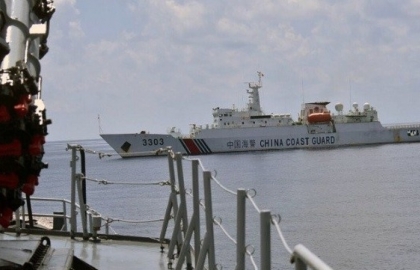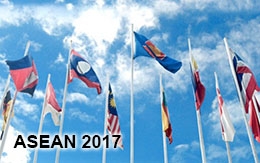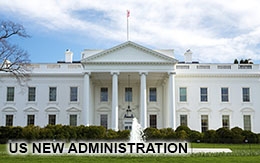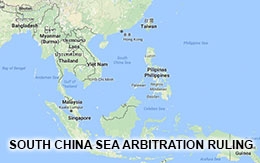Indonesian Awakening: No South China Sea Negotiation with China
Any country that does not make a drastic response to the Chinese claims right from the start, will one day become a victim.

From 26 May to 18 June 020, Indonesia and China had involved the new diplomatic note battle on the South China Sea.
Indonesia often regards itself as a non-claimant State in the South China Sea dispute. This position has been reiterated several times in the past, namely in its No. 480/POL-703/VII/10 on 8 July 2010 and No. 126/POL-703/V/20 note on 26 May 2020 that were addressed to the Secretary General of the United Nations and which were concerned with the extended continental shelf in the South China Sea in 2009 and 2020 respectively. In the former, it was confirmed that "Indonesia is not a claiming State to the sovereignty disputes in the South China Sea". The country also declared that “The so-called 'nine-dotted lines map', as contained in the circular note Number CML/17/2009 dated 7 May 2009, clearly lacks international legal basis and is tantamount to upset the UNCLOS 1982”. In the latter, Indonesia reiterated its position to the nine dash line claim and the legal status of the features in the Spratly Islands by citing the conclusions of the 2016 Tribunal Award on the South China Sea, specifically that no maritime features in the Spratly Islands are entitled to an Exclusive Economic Zone or a Continental Shelf of its own and that the Nine-Dash Line map, which is based on China’s historic rights claim, clearly lacks international legal basis and does not follow UNCLOS.
Indonesia has great concerns about the Chinese nine dash line claim or the claim on adjacent waters emanating from the possible straight archipelagic baseline drawn surrounding the Spratlys claims, The claims will overlap the waters off the Natura Island, the basis point of the Indonesia's archipelago baseline system as specified in Regulation. No. 37, 2008. The recent increase of incidents between the Indonesian police vessels at sea and the Chinese fishing boats in these waters in January 2020 reflects this anxiety well.
However, China has a different view. Commenting on Indonesian remarks, the Chinese note No. CML/46/2020 on 2 June 2020 clarified its position: “There is no territorial dispute between China and Indonesia in the South China Sea. However, China and Indonesia have overlapping claims over maritime rights and interests in some parts of the South China Sea. China is willing to settle the overlapping claims through negotiation and consultation with Indonesia, and work together with Indonesia to maintain peace and stability in the South China Sea."
It is the first official document to confirm China's view of Indonesia as a maritime claimant in the South China Sea dispute. It could stun who were sceptical about Chinese intentions. By claiming maritime zones based on Nanhai Zhudao, which consists of Dongsha Quindao (Pratas Islands), Xisha Quindao (Paracel Islands), Zhongsha Quindao (skerries including Macclesfield Bank and the Scarborough Shoal) and Nansha Quindao (Spratly Islands), China expected to legitimize its claims using UNCLOS terminologies. China might draw the archipelagic baseline for each archipelago by joining the outermost points of their respective outermost features as it already did for the Paracels in 1996. The Chinese “adjacent waters” claim, which also includes an exclusive economic zone and continental shelf based on Nanhai Zhudao and its archipelagic straight baseline, would extend its waters further than the nine dash line claim. It is paramount to remember that China’s note of 2 June 2020 used the term “overlapping claims over maritime rights and interests in some parts of the South China Sea” instead of specifically referring to Natuna islands and the waters around it. China’s claims will continue to expand further of Natuna islands. This behavior can be considered as an example of China's strategy to transform an uncontested area into one of conflict. The same was happen in Tu Chinh bank (Vanguard Bank) on the Vietnamese continental shelf in 1992.
Unsurprisingly, Indonesia immediately protested the Chinese claim in an effort to safeguard its legitimate rights and interests provided by UNCLOS. The note of 12 June 2020 reiterates the previous two arguments highlighted by the note of 26 May 2020: “1) No feature in the Spratly Islands is entitled to an Exclusive Economic Zone or Continental Shelf of its own, hence no feature therefrom will generate overlapping maritime entitlement with Indonesia’s Exclusive Economic Zone or Continental Shelf. 2) No historic rights exist in Indonesia’s Exclusive Economic Zone and Continental Shelf vis-à-vis the People’s Republic of China. It also reiterated its stance against China’s historic right claim, as it says that “Should there be any historic rights existing prior to the entry into force of UNCLOS 1982, those rights were superseded by the provisions of UNCLOS 1982”. Obviously, Indonesia asserted that it’s neither a territorial party nor a maritime claimant in the South China Sea disputes.
A new point in this note is the Indonesian refusal to negotiate overlapping zones with the Chinese: “The Government of the Republic of Indonesia sees no legal reasoning under international law, particularly UNCLOS 1982, to conduct negotiation on maritime boundaries delimitation with the People’s Republic of China or on any other matters pertaining to maritime rights or interests’ claims made in contravention to international law”.
Indonesia resolutely rejects China’s offer for talks on the South China Sea because this State does not have overlapping claims with China as described in UNCLOS. The Indonesian maritime limits are based on the State archipelagic baseline recognized by international law while the Chinese archipelagic baseline claim is unilateral. There is not same maritime entitlement for negotiation as "an apples-to-apples thing. However, in Note No. CML/48/2020 on 18 June 2020 China expressed its firm opposition to the contents of the Indonesian note verbale of 12 June 2020. It reentered Nanhai Zhudao claim.
The incident forced the countries around the South China Sea to be on guard. Any country that doesn not make a drastic response to the Chinese claims right from the start, will one day become a victim.
Indonesia, a non-claimant state in the South China Sea sovereignty dispute, became the second state, after the Philippines, in Southeast Asia to make an official statement in support of the 2016 Tribunal Award. Its participation in the diplomatic note exchanges of the Philippines, Malaysia and Vietnam with China back from December 2019 on the South China Sea will encourage other ASEAN countries to create a consistent position based on UNCLOS as the sole legal basis for defining maritime entitlements and resolving maritime disputes in the South China Sea.
Nguyen Hong Thao is an Associate Professor of the National University of Hanoi and Diplomatic Academy of Vietnam.










